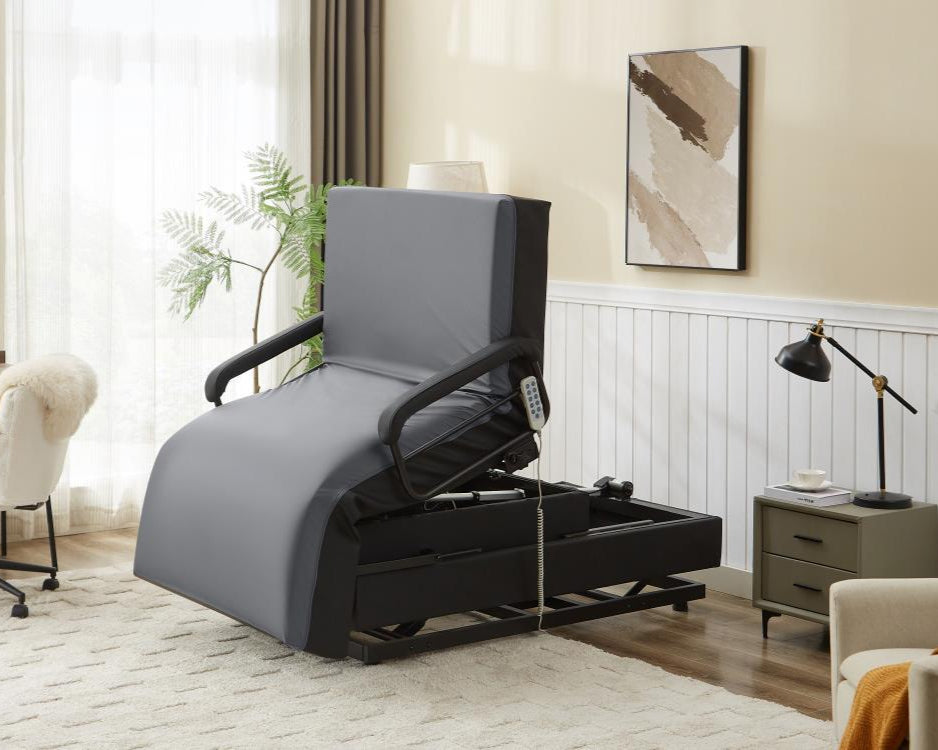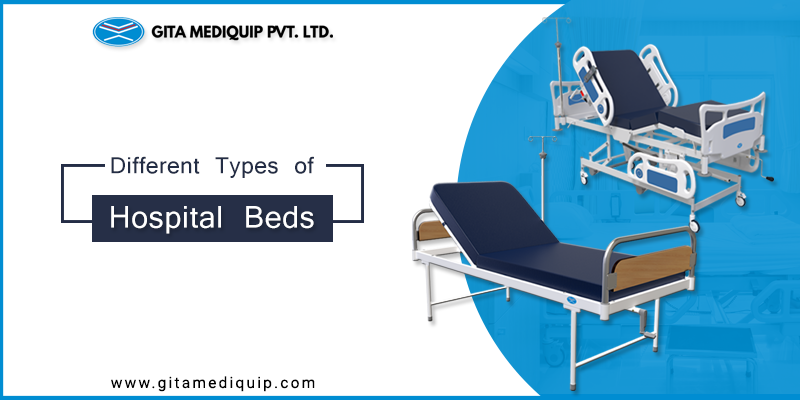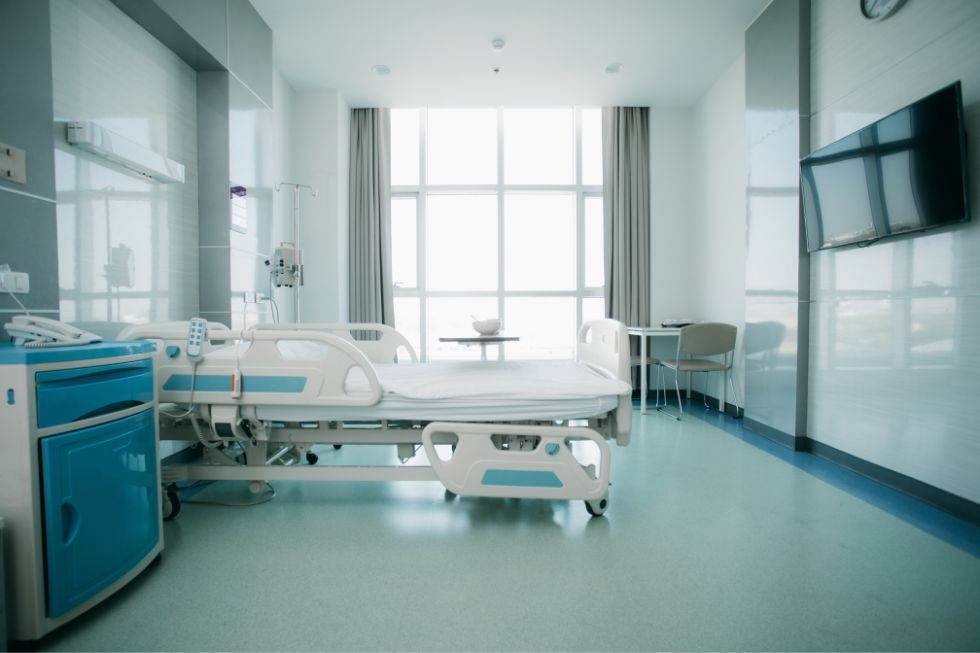Hospital Beds For Home Use Can Be Fun For Anyone
Hospital Beds For Home Use Can Be Fun For Anyone
Blog Article
The 7-Minute Rule for Hospital Beds For Home Use
Table of ContentsGet This Report about Hospital Beds For Home UseThe Basic Principles Of Hospital Beds For Home Use Hospital Beds For Home Use - The FactsNot known Factual Statements About Hospital Beds For Home Use The Ultimate Guide To Hospital Beds For Home UseThe 6-Minute Rule for Hospital Beds For Home UseThe Buzz on Hospital Beds For Home Use
There are three primary kinds of medical facility beds: guidebook, semi-electric, and fully-electric. These beds use hand cranks to change the bed's elevation and raise and lower the head and the foot.
Semi-electric beds have an electrical motor to increase and reduce the head and foot parts of the bed. Individuals and caregivers change the positioning by pressing switches utilizing a hand necklace. The elevation of the bed is changed manually with a hand crank. Full-electric beds have an electric motor that can raise the head and foot areas of the bed as well as the entire elevation and positioning of the bed.
The Only Guide to Hospital Beds For Home Use
There are numerous types of hospital beds, each created to meet details individual needs. Right here are some usual types: This is the most common type of health center bed, created for basic medical usage.
Lower to the ground than a typical bed. This type of bed is designed for bigger patients, with a bigger framework and greater weight capacity than a typical bed. This type of bed is made particularly for youngsters, with smaller sizes than a common bed. Special features such as full size side rails and animation style.
This kind of bed is designed for critically ill individuals that require open tracking and specialized medical devices such as ventilators and infusion pumps. This kind of bed is made for usage during labor and shipment, with adjustable placements and features to support the mother and infant throughout the birth procedure.
A Biased View of Hospital Beds For Home Use
Several function and the devices execute expanding grip to different parts of the vertebra and the extremities without moving the body. These are just a few examples of the kinds of hospital beds available. The specific kind of bed utilized will depend on the patient's problem, medical needs, and various other aspects.
Here is the thing you require to understand. A one-function health center bed is a clinical bed that allows a patient to relocate only the head or foot area up or down. A 2 function hospital bed usually refers to a sort of medical bed that has 2 adjustable functions to aid clients in medical facilities or treatment facilities.

See This Report on Hospital Beds For Home Use
A 7-function ICU bed is a kind of clinical bed that offers a number of flexible features to sustain critically ill patients in a critical care unit (ICU) (hospital beds for home use). The seven functions usually include: Backrest change: The back-rest can be adapted to different angles to help the person stay up or rest easily
Elevation change: The bed can be raised or decreased to make it simpler wikipedia reference for patients to get in and out of bed, and for caregivers to offer care. Trendelenburg placement: The whole bed can be slanted to promote blood circulation and circulation in the body. Reverse Trendelenburg placement: The bed can additionally be tilted in the contrary instructions to promote blood circulation and circulation in the upper body.
While even more cost effective than electrical models, these beds need exertion for changes. The main benefits of manual beds are their affordability and reliability, as they do not count on electrical power. However, the requirement for hands-on initiative can be a limitation in circumstances where quick adjustments are required or where caretakers face physical difficulties.
The Of Hospital Beds For Home Use
Semi-electric hospital beds provide a balance of handbook and electrical controls. These beds provide an excellent center ground in between handbook and fully electrical alternatives, supplying convenience of usage without the complete expense of electric versions.
Semi-electric beds are fit for clients that require moderate adjustments to the head and foot sections but can manage without regular height changes. This makes them an economical option for those seeking convenience and comfort without the need for constant repositioning. Totally electrical healthcare facility beds include electric controls for smooth changes to the elevation, head, and foot sections.
Specialty health center beds, such as ICU beds, long-term care beds, and bariatric beds, are very carefully created to address particular clinical demands. These beds offer customized look after varied client teams, enhancing both outcomes and convenience. In the adhering to sections, we will explore the primary kinds of specialty healthcare facility beds, outlining their details advantages and applications.
With years of experience in producing electrical straight actuators - hospital beds for home use and close collaboration with the health care industry, TiMOTION is well-positioned to give trustworthy health care remedies. Our up and down integrated business manages every action of the production procedure, from design to actuator assembly, ensuring we supply remarkable value and personalized remedies customized to your certain needs
The Ultimate Guide To Hospital Beds For Home Use

To discover more about integrating these technologies into your items, call us today. Further continue reading this reading:.
Data is sourced from the Medicare Expense Report.

Examine This Report on Hospital Beds For Home Use
A health center bed is a bed made specifically for clinical functions. It is not just a place for patients to relax, but likewise a system for medical operations. Unlike common home beds, health center beds generally have adjustable functions, which can help with medical team to make different changes according to the requirements of patients, such as altering the elevation, disposition, and support angle of the back and legs of the bed.
Report this page